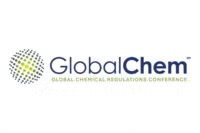WASHINGTON (April 30, 2024) – The American Chemistry Council (ACC) issued the following statement today in response to the U.S. Environmental Protection Agency’s (EPA) final risk management rule for methylene chloride under the Toxic Substances Control Act (TSCA):
“Methylene chloride is a critical chemical used in many industrial and commercial applications. Among other things, it is used as a chemical intermediate to manufacture low global warming potential (l-GWP) refrigerants.
“While we are evaluating the risk management rule in detail, we appreciate that EPA will continue to allow the safe use of methylene chloride in various critical industrial and commercial applications while complying with workplace protection requirements. Today's final rule illustrates that EPA considered several of the significant comments the Agency received from industry and other stakeholders as it finalizes the rule and we welcome the EPA’s continued engagement with the stakeholder community to ensure that the best available data and information are the foundation for risk management actions.
“ACC continues to be disappointed with EPA’s approach to establishing occupational exposure limits. EPA’s underlying methodology to derive occupational exposure limits remains flawed and out of step with how occupational exposure limits are established globally. EPA’s methodology and approach need to be revised before being applied in subsequent risk management rules. Without making these improvements, these limits will be unworkable, unmeetable examples of unnecessary overregulation.
“ACC is committed to working with EPA as stakeholders move into the compliance phase and on improving EPA’s approach to regulating worker safety.”



